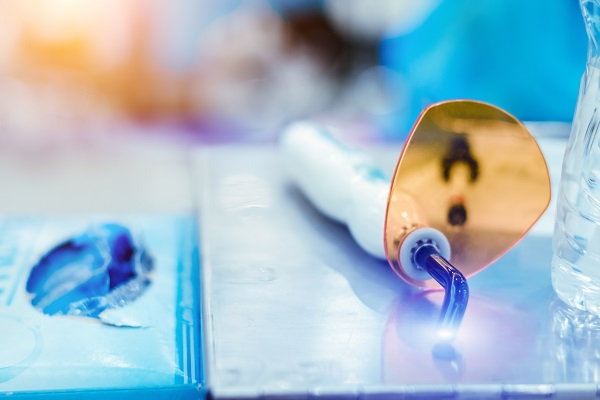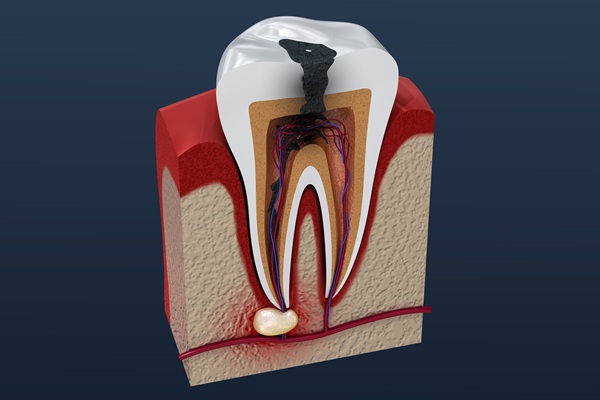How a Dental Sealant Can Keep Teeth Clean

Your dentist might recommend dental sealant if some of your teeth are vulnerable to decay. These restorations serve as a barrier that keeps food particles, bacteria, and acids out of the grooves of their biting surfaces.
Oral bacteria feed on the sugars in food particles stuck on teeth after meals, and they excrete acids that cause tooth decay. These acids eat away at the structures of teeth.
Dental sealants are varnish-like materials that are painted on teeth surfaces. They are made from composite resins like those used for dental bonding, but it comes in liquid form, allowing it to seep into the grooves of teeth. When exposed to ultraviolet light, the sealant hardens up, forming a barrier that protects teeth from decay for up to five years.
How dental sealant keeps your teeth clean
Tooth decay is one of the most common issues dentists deal with. Brushing twice daily and flossing once a day is an effective way to protect teeth against decay, but some teeth are easier to clean than others. For example, the molars in the back of the mouth are often the hardest to clean, and children, in particular, struggle with cleaning them.
That allows food particles to stick to them for longer periods, giving oral bacteria the fuel they need to make acids that damage teeth. A dental sealant closes up the grooves of a tooth’s biting surface, preventing food particles and bacteria from making contact with them. It also evens out the tooth’s biting surface, making it easier to clean.
The process
Applying dental sealants is a non-invasive process that does not cause the patient any pain. It often starts with the dentist examining the patient to determine if the teeth being treated have existing decay. Any issues detected are usually addressed before proceeding with sealants.
Here is what the procedure looks like:
- The patient’s teeth are cleaned and dried to start the treatment
- A gel that contains an etching solution as its main ingredient is applied to the teeth being treated to roughen them. This leads to a stronger bond with the sealant
- The gel is rinsed off the patient’s teeth, and their teeth are dried
- The sealant is then brushed onto the pits and grooves of the teeth being treated. It seeps into all the crevices on the biting surface, sealing them
- The sealant is hardened with ultraviolet light to complete the process
Benefits
Covering teeth with dental sealants gives them a protective shield that prevents debris, bacteria, and acids from getting into their pits and grooves. The sealant protects the patient’s teeth 24/7 for up to five years.
Dental sealants are not a replacement for good oral hygiene. Patients still need to protect their teeth by brushing and flossing regularly.
Protect your teeth with dental sealants
Dental sealants protect your teeth from decay, sparing you the pain and discomfort that often comes with decayed teeth. Give us a call or visit our Lincroft clinic to learn more about dental sealants.
Request an appointment here: https://lincroftvillagedental.com or call Lincroft Village Dental Care at (732) 842-5005 for an appointment in our Lincroft office.
Check out what others are saying about our dental services on Yelp: Dental Sealants in Lincroft, NJ.
Recent Posts
Dental sealants offer patients a powerful defense against cavities. General dentists present this option to patients who need a little help preventing tooth decay. According to the American Dental Association, sealants are safe.Dental sealants provide extra protection to teeth, especially for those more prone to tooth decay. Preventing decay is essential to one's good oral…
Dental sealants are an effective preventive treatment against tooth decay that are commonly associated with children and young adults. But what about adults? Continue reading to learn about dental sealants for adults and the purpose the treatment serves.Tooth decay and gum disease are the major causes of tooth loss in adults. The two conditions are…
Dental sealants work by reducing the chances of decay on the chewing surface of the tooth. Dental sealants do not protect the flossing surfaces, nor do they protect the cheek and tongue surfaces. The sealant is not a guarantee against tooth decay, but it is the best possible protection. To avoid dental cavities, you must…
A dental sealant is a cavity’s worst enemy. It blocks bacteria and food particles from the lingual and chewing dental surfaces in your mouth. The result is healthier, stronger teeth that can last longer than teeth without sealants. If you want to know how a dental sealant can block a cavity, here are the facts.A…


